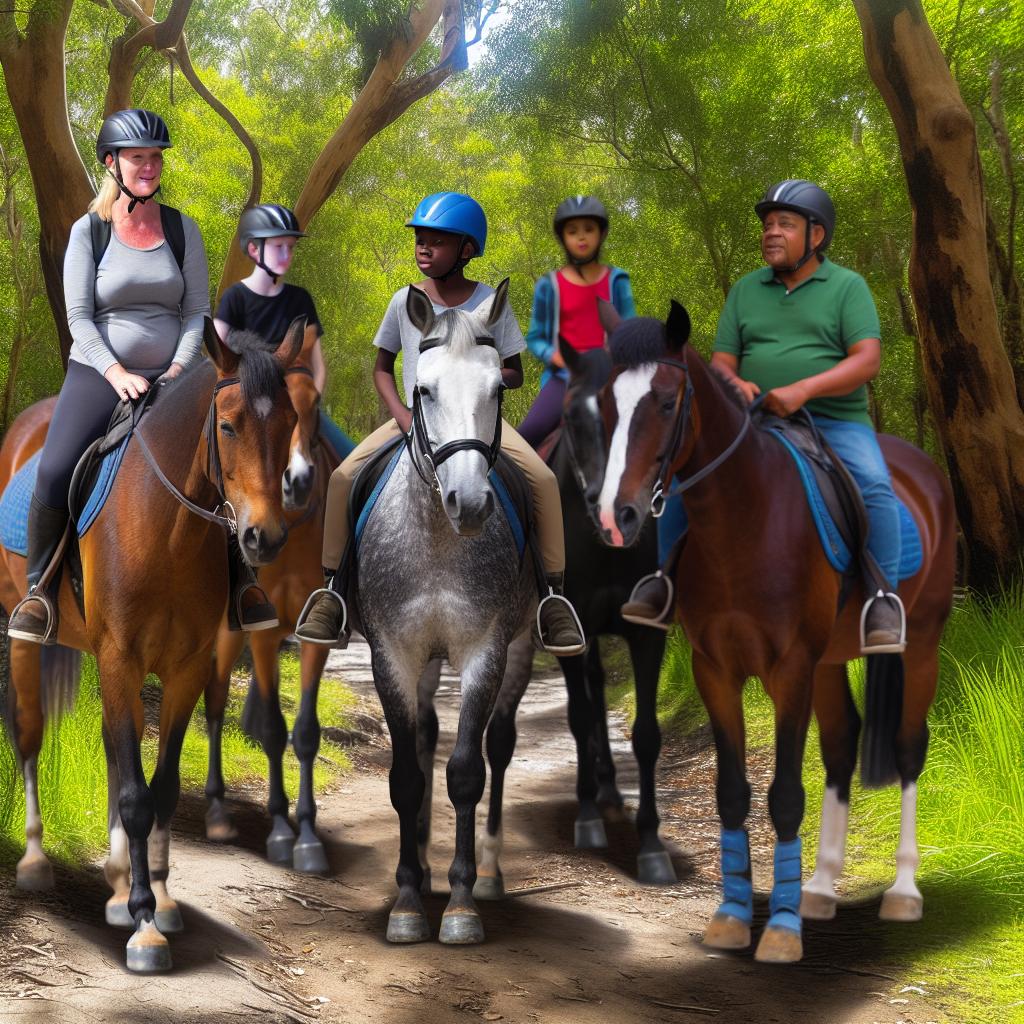Guide to Fort Ogden, Florida
Horseback Riding Tours

Introduction to Horseback Riding Tours
Horseback riding tours are increasingly popular as they provide a distinctive avenue to explore scenic landscapes and engage deeply with nature. Riding a horse allows participants to venture into areas that might be less accessible by motor vehicles or on foot, offering a peaceful and intimate experience with the environment. These tours come in various formats, catering to diverse audiences. Whether you are a novice rider or someone with considerable equestrian skills, there is likely a horseback riding tour suited to your preferences and abilities. Riders can immerse themselves in stunning views, gain insights into regional history and culture, and encounter diverse wildlife along their journey.
Types of Horseback Riding Tours
Horseback riding tours are designed with different skill levels and interests in mind, ensuring a broad appeal.
Guided Trail Rides: These rides are perfect for beginners or those with limited horseback riding experience. Led by knowledgeable guides, these tours are usually confined to short trails that offer scenic beauty and a chance to familiarize oneself with the basics of riding. It’s an ideal introduction to the joys of horseback riding, focusing on safety and instruction within an enjoyable natural setting.
Packages and Multi-day Excursions: Tailored for more seasoned riders, such tours incorporate multiple days of riding, often complemented by camping or lodging options. Many packages include meals, enhancing the overall experience. These excursions aim to delve deeper into remote terrains and offer a more immersive exposure to captivating landscapes.
Themed Tours: Themed tours can add an extra layer of interest to horseback riding. For example, a wildlife-themed tour might involve rides through areas known for their fauna, while historical tours would traverse landscapes rich with stories of the past. Photography-centric tours offer stops at visually striking sites, ensuring opportunities to capture memorable images. Guides with specialized knowledge provide context and insight into the tour’s focal theme, enriching the experience.
Preparing for a Horseback Riding Tour
Proper preparation plays an essential role in the enjoyment and safety of horseback riding tours. Before embarking on a tour, consider these vital aspects:
Skill Level: An awareness of one’s riding ability is crucial when selecting a tour. Beginners should look for tours that offer fundamental riding instruction and simpler trails. Conversely, riders with more experience may seek tours that present more challenges and longer durations.
Clothing and Gear: Appropriate attire is critical for comfort and safety. Participants should wear weather-suitable, comfortable clothing and sturdy closed-toe shoes. Although helmets are generally provided by tour operators, confirming this detail before the tour is advisable to ensure personal safety.
Physical Fitness: Some tours, especially those of longer durations, might necessitate a certain level of physical fitness. It’s prudent to inquire about any physical demands that might be associated with a specific tour.
Benefits of Horseback Riding Tours
Engaging in horseback riding tours presents multiple advantages beyond the simple joy of riding:
Physical Exercise: Riding is an excellent form of exercise, enhancing balance, coordination, and core muscle strength. As you maneuver and control the horse, you engage in a full-body workout.
Mental Well-being: Immersion in natural surroundings often leads to a sense of peace and tranquility. Experiences in nature can reduce stress, elevate mood, and contribute positively to mental health. The rhythmic motion of the horse coupled with fresh air and open landscapes offers a meditative and rejuvenating experience.
Learning Opportunity: Horseback riding tours frequently provide educational benefits. Through guided tours, riders can glean information about the local flora and fauna, regional history, and cultural nuances, adding intellectual enrichment to their physical adventure.
Choosing the Right Tour Operator
Selecting the appropriate tour operator is a vital step in ensuring a safe and memorable horseback riding experience. Here are some points to consider:
Reputation: A reputable tour operator with positive reviews and testimonials typically signifies reliability. Seeking personal recommendations from friends or family can further assure a good choice.
Safety Standards: Verify that the tour operator adheres to high safety standards. This includes the regular maintenance of equipment and the employment of experienced and trained staff who provide instruction and guidance.
Environmental Practices: Touring with operators who emphasize sustainable practices is increasingly important. Consider those who actively work to minimize environmental impact, thereby preserving the landscapes they showcase.
Conclusion
Horseback riding tours provide a distinctive means to connect with nature, learn about the environment, and for some, improve their riding skills. They cater to various levels of rider expertise, from short, beginner-friendly trail rides to extensive multi-day excursions for the avid rider seeking adventure. For additional details on available tours, you may wish to contact local tour providers or consult specialized travel websites. Embarking on a horseback riding tour could lead to discovering new passions, all while appreciating the beauty and tranquility of the natural world.



